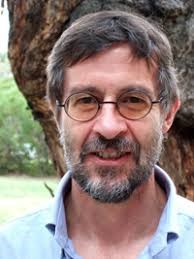Law Lecture Theatre 1, Faculty of Law, Grosvenor Crescent, Sandy Bay Campus
Summary:Can the Extention Rebellion movement create a tipping point for climate change action?
Presenter(s):
- Professor Neil Gunningham, Australia National University
- Lord Mayor of Hobart, Councillor Anna Reynolds
- Nicole Sommer, Environmental Defenders Office
In 2018 the Intergovernmental Panel on Climate Change warned that we have only 12 years at current global greenhouse gas emission rates before our chances of limiting global warming to 1.5C are seriously at risk. So we have a brief window in which to act, and to do so with enough force, commitment and ambition to achieve a rapid decarbonisation of the global economy. But how might such a fundamental shift - from business as usual to transformative change - be achieved?
Part of the answer may lie in events in London in April 2018, where, under the banner of the Extinction Rebellion, thousands of people committed acts of civil disobedience, seriously disrupting the capital for 10 days. Media attention on climate change soared and a climate emergency motion was passed by the UK Parliament.
This public lecture examines Extinction Rebellion’s strategy, its emphasis on non-violent civil disobedience and its impact, before asking: What, beyond grassroots politics, would a transformational movement built around climate change involve? Must pressure be brought to bear on recalcitrant governments from many quarters: not just from grassroots activist groups but from business, financial markets, scientists, school children, faith groups, cities and multiple others?
Perhaps, as groups like Extinction Rebellion gain momentum, and join with others, a tipping point will be reached, generating rapid and far-reaching changes across the economic and social system. If so, then bottom up action driven by civil society, in tandem with its allies and as part of a broader web of influence, may yet be the catalyst for rapid, radical and constructive action by nation states.
This event will consist of a presentation by Professor Neil Gunningham, Australian National University School of Regulation and Global Governance (RegNet) followed by panel discussion with Hobart Lord Mayor Anna Reynolds and Environmental Defenders Office Tasmania lawyer Nicole Sommer, with audience Q&A.
About the Speakers

Neil Gunningham is a lawyer and social scientist working in the areas of climate, energy and environmental regulation and governance. He is a Fellow of the Australian Academy of Social Sciences and a Professor in the School of Regulation and Global Governance (RegNet) at the Australian National University. He is a past Fulbright Scholar and Distinguished Research Professor at Cardiff University. His books include Smart Regulation: Designing Environmental Policy, and Shades of Green: Business, Regulation and Environment. His current research is on the role of financial markets in climate change mitigation, and on the role of climate activism in averting a climate catastrophe.

Anna Reynolds is Lord Mayor of the City of Hobart following her election in 2018. Before entering politics Anna worked as a climate change advisor and advocate. She established and was co-ordinator of Australia’s first climate change community organisation in 1998 – the Climate Action Network Australia. She established WWF Australia’s climate change program in 2002 and was the Deputy Director of the Global Climate Change Program for WWF International from 2004-2008. In this role she managed the strategy development and operations for an international team.

Nicole Sommer is the CEO/Principal Lawyer of the Environmental Defenders Office Tasmania. Having previously worked in private practice and state government in Tasmania, Victoria and NSW, Nicole has acted for government and private clients on multiple pieces of climate litigation both in adaptation and mitigation, including wind farms, coal mines and coastal climate adaptation. EDO Tasmania is a specialist community legal centre providing the Tasmanian community advice and representation in environment and planning law.
Refreshments will follow the forum.